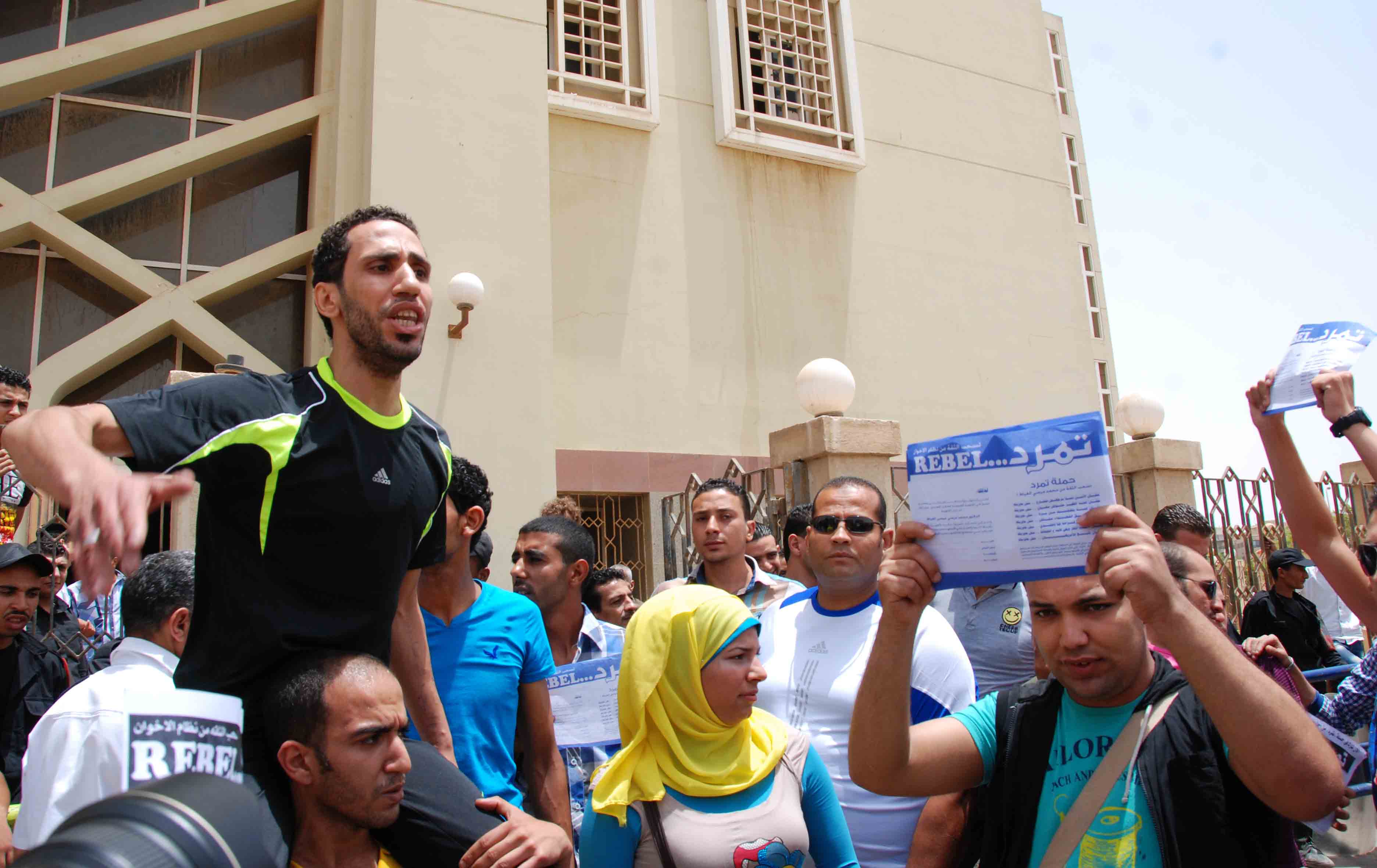CAIRO: For the last five years, Western officials have eyed the apparent repentance of Libya’s enigmatic “revolutionary guide Moammar Al-Qaddafi with a mix of disbelief, suspicion and celebration. Now, at least one Egyptian firm is betting his reform is genuine enough to help them turn a profit.
The Libyan government has cleared Naeem Holding, Egypt’s second-largest publicly traded investment bank, to open a representative office in that country, the bank announced this week.
A recent shift in Libyan policy, including the privatization of several formerly state-run insurers, prompted Naeem’s move west, said Hisham Tawfik, an executive board member at Naeem.
“[Libya] is changing, he said. “There have been a lot of strategic moves to liberalization.
For now, the office will be staffed by just one agent, Tawfik said. Eventually Naeem hopes to provide asset management, corporate financing and, “to a lesser extent, brokerage services in Libya, he said.
The asset management services will largely target the government, he said, adding that the bank could also help the state arrange initial public offerings and further privatizations.
Getting approval was simple, Tawfik said. After applying to Libya’s economic ministry and central bank, the bank was given “very flexible terms to meet, which included hiring Libyans – the Libyan unemployment rate is around 30 percent according to 2004 estimates, the most recent available – and meeting a minimum capital requirement of 5,000 Libyan dinars ($3,824.47).
“It’s nothing, Tawfik said of the requirement.
For nearly four decades, two factors have dominated the Libyan economy: oil prices and the whims of Qaddafi, the nation’s leader since he ousted the country’s monarchy in a 1969 coup.
The leader’s mercurial attitudes have beguiled enemies for decades. In the 80s, Western nations accused Libya of sponsoring the bombings of a Berlin nightclub and a PanAm airliner that exploded over Scotland, killing 270.
In 1986, US President Ronald Reagan ordered the bombing of Tripoli and Benghazi, killing 101, allegedly including Qaddafi’s adopted daughter.
When Libya wouldn’t hand over suspects in the PanAm investigations, the United Nations slapped sanctions on the desert nation. When Libya started to cooperate in 1999, the sanctions were suspended.
It was not until 2003, when Libya formally took responsibility for its role in the PanAm bombing and said it would dismantle its nuclear arms program, that the UN fully lifted the sanctions. Over the following years, Libya’s relations with the West kept improving and last month Condoleeza Rice made the highest-level US visit to Qaddafi’s state since 1953.
As Qaddafi began to recast himself as the reformed pariah, he also started calling for widespread privatization, an apparent reversal of decades of socialism-tinged policymaking. In 2003, Libyan Prime Minister Shukri Ghanem said the state would sell over 300 companies, including firms in textiles, minerals, shoemaking and farming.
Last month, Qaddafi said that “as long as money is administered by a government body, there would be theft and corruption, in reference to oil revenue, according to the BBC.
But Libya’s climate is still far from ideal for investors, according to a ranking published by the Heritage Foundation, a right-leaning US think tank. Libya was the least economically free of the 17 Middle Eastern and North African nations included in the foundation’s Index of Economic Freedom for 2008. It ranked only 154th in the world.
“Oil dominates the economy, and the government dominates the oil sector, the report noted.
Low ratings in property rights and the financial sector also hamstrung Libya’s overall ranking. While the government has often said it will liberalize the banking sector, even announcing it would seek bids for the state-owned Sahara Bank last year, “there is no coherent plan for privatization, the report said.
Under a law passed in 2005, foreign banks are able to open branches in Libya. As of mid-2007, 14 foreign banks had opened representative offices, according to the foundation report. But “regulation is bureaucratic and antiquated, and central bank transparency is weak, the report said. “There is no capital market, although the government adopted a law to establish a stock market in June 2006.
But Egypt has been capitalizing on what openings it can find. Trade between Egypt and Libya grew 39 percent last year to $267 million, according to the Central Bank of Egypt.
As for Naeem, which also operates in Saudi Arabia and the United Arab Emirates, it is still too early to speculate on potential profits in Libya, Tawfik said.
“Anyone following economic news will tell you some basic changes have happened [in the Libyan economy], he said. “Whether they are serious, time will tell.


